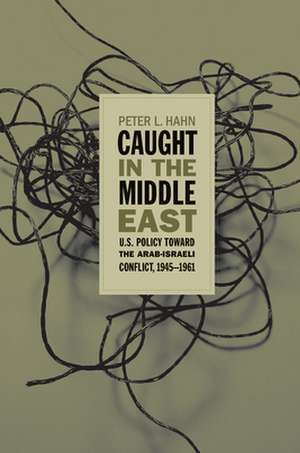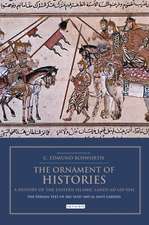Caught in the Middle East: U.S. Policy Toward the Arab-Israeli Conflict, 1945-1961
Autor Peter L. Hahnen Limba Engleză Paperback – 31 ian 2006
Preț: 312.90 lei
Nou
Puncte Express: 469
Preț estimativ în valută:
59.87€ • 62.69$ • 49.66£
59.87€ • 62.69$ • 49.66£
Carte tipărită la comandă
Livrare economică 09-23 aprilie
Preluare comenzi: 021 569.72.76
Specificații
ISBN-13: 9780807857007
ISBN-10: 0807857009
Pagini: 398
Dimensiuni: 165 x 235 x 25 mm
Greutate: 0.6 kg
Editura: University of North Carolina Press
ISBN-10: 0807857009
Pagini: 398
Dimensiuni: 165 x 235 x 25 mm
Greutate: 0.6 kg
Editura: University of North Carolina Press
Notă biografică
Peter L. Hahn is professor of history at The Ohio State University and executive director of the Society for Historians of American Foreign Relations. He is author of The United States, Great Britain, and Egypt, 1945-1956: Strategy and Diplomacy in the Early Cold War.
















